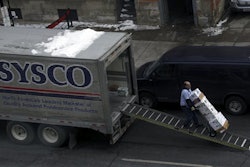TACOMA, Wash. (AP) — Nineteen months after the state auctioned off its liquor stores to dozens of private entrepreneurs, more than 60 percent of the stores are out of business and many others are struggling to stay afloat.
Nearly two dozen remaining stores are in danger of losing their licenses because they owe the state fees on liquor already sold, The News-Tribune reported Sunday.
"It's just been a nightmare," said Michelle Tate, a former state liquor store employee and ex-grocery store manager who, along with her dad, Teddy Rayford, bought the rights to the state's former liquor store on Tacoma's Sixth Avenue.
Her father, who bankrolled the venture, says he has invested more than $500,000 in the store. That investment involves countless hours of work offering a hard lesson in the reality of competitive business, a partially mothballed store and a stack of unpaid bills.
The auctions brought the state $31.9 million for the rights to open stores under 10,000 square feet in the same area where the state itself had stores. On average, the new owners paid nearly $200,000 per store for the former state store rights.
Winning the auction rights supposedly gave the new state store owners a niche that under law couldn't be entered by any of the other 1,100 new retailers selling liquor in Washington. That niche was stores under 10,000 square feet.
In theory, that left the neighborhood market to the former state stores and contract sellers, but their theories about attracting a significant share of the state's former volume did not meet reality.
In Chelan, where Julian Mart and his business partner bought the sole liquor store, sales fell from $2.5 million under the state's monopoly to $260,000 in the first year of business.
In Tacoma's Westgate area, David Cho's Liquor Liquor store saw sales drop 85 percent.
"We knew we'd lose a lot of volume to Safeway and Thriftway and the big-box stores," Tate said. "We figured that even with a big drop, we could make money," she said.
But the sales decline was even steeper than they had predicted. Some of the drop came because purchases from bars and restaurants have nearly evaporated.
Under the old state monopoly, bars and restaurants bought all their liquor through state stores. Under the new system, they were free to buy booze anywhere, even directly from the big wholesale distributors who have come to Washington to win new business.
Small-store owners say the distributors are undercutting their prices to win business from bars and restaurants. In some instances, that means a restaurant can order as little as one bottle from a distributor and pay less for that bottle than the former state stores do per bottle for 50 cases of the same beverage.
The small-store owners want the Legislature to halt what they say is an unfair practice.
John Guadnola, executive director of the Washington Liquor and Wine Distributors, said prices do differ between stores and bars and restaurants.
That practice, which the industry calls "channel pricing," is a well-established practice in many states throughout the country. Courts, he said, have upheld the practice as legal.
___
Information from: The News Tribune, http://www.thenewstribune.com






















